|
Scripture Readings: Acts 4:5–12 | Psalm 23 | 1 John 3:16–24 | John 10:11–18
“I am the good shepherd. The good shepherd lays down his life for the sheep.” (John 10:11). Why did the farmer fire the shepherd? He kept on falling asleep whenever he tried counting them. Today, the fourth Sunday of the Season of Easter, is sometimes called Good Shepherd Sunday, as the Scripture readings assigned for the day invite us to reflect on how Jesus Christ the Risen Lord continues to care for and watch over His people today. As we may recall, the ancient image of the Living God acting as a shepherd of His people Israel in the Old Testament remains a powerful picture of His dedicated care and concern for them… working for their good, even when they stubbornly wander away from Him, and head towards danger. Our Psalm this morning, Psalm 23, which beautifully expands on this metaphor, is probably one of the most well known and well loved pieces of poetry ever penned. It’s author, King David, who had himself been a shepherd for a time, depicts Yahweh, the Living God, providing personal, gracious, and intimate care in his own life… and the lives of God’s people. And as we heard in our reading today from St. John’s Gospel, Jesus taps into this tradition… but with a twist. He picks up this well known imagery about God… but then He applies it to Himself. “I am the good shepherd.” He says… and in a profound way, these words identify Jesus with Yahweh, the Living God. It's easy for us English speakers to miss this connection a first glance. But to understand the force of what Jesus is saying here, it helps if we know a bit of Hebrew… and can recall a bit more of the wider story of the Bible. Way back in Exodus, when yet another lowly shepherd, Moses, was tending his father-in-law’s sheep on Mt. Sinai, he suddenly found himself face to face with the Living God, the Creator of all, speaking to him from a burning bush. And what God said changed Moses’ life for good. God told Moses that He had seen the suffering of His people in slavery, and He was determined to do something about it… and God’s way of doing something was to send Moses back to Egypt, and have him tell Pharoah to let His people go. Moses was, of course, an Israelite himself… and so it might not seem out of place for God to commission him to take part in rescuing his own people. But even so, Moses hesitated. He was afraid. And so he started coming up with all sorts of excuses. Saying anything he could to get God to change His mind, and choose to use someone else. One of the excuses he tried is important for understanding our message this morning. It’s found in Exodus 3:13-15, “But Moses said to God, “If I come to the Israelites and say to them, ‘The God of your ancestors has sent me to you,’ and they ask me, ‘What is his name?’ what shall I say to them?” God said to Moses, “I Am Who I Am.” He said further, “Thus you shall say to the Israelites, ‘I Am has sent me to you.’ ” God also said to Moses, “Thus you shall say to the Israelites, ‘The LORD, (or Yahweh) the God of your ancestors, the God of Abraham, the God of Isaac, and the God of Jacob, has sent me to you’: This is my name forever, and this my title for all generations.” “Thus you shall say to the Israelites, ‘I Am has sent me to you.’” The Living God’s Name, given here to Moses, for the first time, is I AM. Or I WILL BE. Moses is to say that The One Who Is… Who Is the very essence of existence itself… The One Who Is eternally faithful and constant… The One Who Is has sent Moses to rescue Israel, and lead them into the Promised Land… WHO WILL BE providing for them, protecting them, and prodding them towards the way of life. And as it turns out, God remains true to His name. He is completely faithful to Israel, leading them like a shepherd, caring for and providing for them… but they keep scattering this way and that, and chasing after the gods of the other nations, and completely abandoning the ways of their Saviour. Yet even when Yahweh allows His people to get themselves into trouble, He never gives up on them… but looking on them with compassion and concern, time and again He consistently reaches out His hand to save them. Now this sacred Divine Name, that God tells to Moses is hard to make sense of grammatically… especially as it came to be considered far too holy to say out loud. When it’s spoken by God Himself, it’s I AM WHO I AM. When others say it it’s THE ONE WHO IS, and this is where we get the name Yahweh from… the holy, personal name of Almighty God. Over time, in the Hebrew imagination, the phrase I AM comes to be associated with the Divine Name, and to have this sacred significance… something fitting for the Living God alone to say. And in St. John’s Gospel, written many centuries later, many scholars have noted that Jesus repeatedly refers to Himself using these loaded words “I AM” in ways that connect Him directly to the Living God’s saving work in the world. Though there are other examples, there are seven times that John quotes Jesus use this phrase to refer to Himself as the unique source of God’s provision and deliverance: John 6:35, I AM the Bread of Life… John 8:12, I AM the Light of the World… John 10:9, I AM the Gate or Door… John 11:25 I AM the Resurrection and the Life… John 15:1, I AM the True Vine… and today’s reading from John 10:14… I AM the Good Shepherd. In his masterful way, this is St. John helping us to see that in Jesus Himself we are actually seeing the Living God Himself at work. That Jesus is none other than Yahweh, the ONE WHO IS, the Eternal Son of God, having taken on human existence, and dwelling among us… to be our Saviour… our Redeemer… and our Good Shepherd. Not just back then, but today! For Jesus remains our Good Shepherd even now. While Moses had been a shepherd for a season, before he was caught up in God’s mission to lead Israel out of slavery and through the wilderness into the Promised Land. But Moses’ ministry ended. Before they entered into that good land, Moses died in the wilderness. And King David had also been a shepherd, before being chosen by the Living God to be Israel’s anointed King… but his service also came to an end. David died, and he was buried, and his descendants led Israel far from the ways of the Living God. But the Good News of Easter is that, even though Jesus our Good Shepherd, laid down His life for His sheep at the cross… dying for us all as the fulfillment of Yahweh’s universal rescue mission… Jesus was also raised again… resurrected to bring God’s New Life to the world. And according to Jesus, this was always part of the plan. John 10:17-18, “For this reason the Father loves me, because I lay down my life in order to take it up again. No one takes it from me, but I lay it down of my own accord. I have power to lay it down, and I have power to take it up again. I have received this command from my Father.” Having taken up His resurrected life, Jesus remains our Good Shepherd even now. He is still THE ONE WHO IS and THE ONE WHO ALWAYS WILL BE there for us… to comfort, and correct, and guide, and provide, and lead us away from danger and disaster, and into the Promised Life of God’s good Kingdom. And so, when we find ourselves feeling lost… or frightened… or stuck in a mess of our own making… we know we can turn to our Good Shepherd, and trust that He will be right there with us through it all… and He will not leave us to fend for ourselves, because we know in His great compassion and love, He’s already laid down His life for our sake, and risen again to save us… and not just us! Remember His words in John 10:16, “I have other sheep that do not belong to this fold. I must bring them also, and they will listen to my voice. So there will be one flock, one shepherd.” Words to remember whenever we’re tempted to become self-focused, and forget God’s saving love is for all. But at times we might wonder: how does Christ keep caring for His flock today? Where are we supposed to turn to experience His love in our lives? One thing we can safely say about Yahweh, the Living God, is that He’s consistent. And although there are lots of ways that God can and does directly connect with us, and care for us, one of the primary ways that He keeps choosing to do so is through the lives of other people. People like Moses… as hesitant as he was to take part in rescuing his own enslaved community. And people like David, who was dismissed as unimportant, and overlooked until the Living God raised him up to the throne. People like St. Peter and St. John, who in our reading today from Acts Chapter 4, carried on Christ’s own mission to share the Good News of God’s Kingdom through their words and their deeds. And God works through people like you and I here today, who have our own parts to play in God’s story. Turning to Acts for a moment, let’s take a quick look at what these disciples were up to. Or rather, what Jesus Himself was up to in and through them. Last week we heard how these two Apostles were approaching the Temple in Jerusalem to worship, in the days after Pentecost. By this time, the Spirit of God had been poured out upon Jesus’ followers, filling them with God’s divine life in a whole new way. At the gate to the Temple, they saw a man who could not walk, begging for alms. Like Yahweh, way back in the Exodus story, they saw this man in his sufferings, and they did something about it: they reached out, took him by the hand, and in the name of Jesus he was completely healed. This caused quite a stir, and then they began to proclaim to the crowds that it was not them, but the Living God Himself, the One who had raised Jesus from the dead, that had healed this man… boldly proclaiming in Acts 3:16 that “by faith in his name, his name itself has made this man strong, whom you see and know; and the faith that is through Jesus has given him this perfect health in the presence of all of you.” Faith in Jesus’ name had restored the man to health. Not faith in the disciples’ abilities. Or wisdom. Or way with words. It was Jesus the Risen Lord, the Good Shepherd, at work in their faithful actions and words, through the power of the Holy Spirit of God within them. Here we pick up the story again in Acts 4:1-12. “While Peter and John were speaking to the people, the priests, the captain of the temple, and the Sadducees came to them, much annoyed because they were teaching the people and proclaiming that in Jesus there is the resurrection of the dead. So they arrested them and put them in custody until the next day, for it was already evening. But many of those who heard the word believed; and they numbered about five thousand. Just like Jesus, their Good Shepherd, these two disciples were laying their lives down, suffering for the sake of the sheep… putting themselves in troubles’ way to help others come to know the Good News of the Risen Lord. Back to Acts: “The next day their rulers, elders, and scribes assembled in Jerusalem, with Annas the high priest, Caiaphas, John, and Alexander, and all who were of the high-priestly family. When they had made the prisoners stand in their midst, they inquired, “By what power or by what name did you do this?” Then Peter, filled with the Holy Spirit, said to them, “Rulers of the people and elders, if we are questioned today because of a good deed done to someone who was sick and are asked how this man has been healed, let it be known to all of you, and to all the people of Israel, that this man is standing before you in good health by the name of Jesus Christ of Nazareth, whom you crucified, whom God raised from the dead. This Jesus is ‘the stone that was rejected by you, the builders; it has become the cornerstone.’ There is salvation in no one else, for there is no other name under heaven given among mortals by which we must be saved.” Like Moses before Pharoah, St. Peter and St. John were drawn into God’s plan to set His people free… to share with them the Good News of God’s victory over sin and death, and the promise of New Life through Jesus Christ, the Risen Lord. Even though God’s people had been wandering, and their leaders had led them astray, God didn’t give up on them! And through these two faithful disciples, through their willingness to stand firm and bear witness to the truth, Jesus the Good Shepherd was at work gathering His flock together again to lead them into life. But this is not only true for folks like Peter and John… Jesus the Good Shepherd can and will work through all of us… all who will trust and follow Him, to carry on the good work of God’s Kingdom. How? Certainly not because of our own abilities. Or wisdom. Or special skills. He might end up using these parts of our lives, but then again, He might just as easily work through our weaknesses… our moments of fear, and our struggles… the moments we need our Good Shepherd most of all. The truth is, Jesus Christ continues to work through the lives of His people when they choose to trust Him, and walk in His ways: Simply living out our faith, helping our love to grow, and sharing our hope with those around us. This is the idea at work in our first reading today… how God’s people participate in the work of the Kingdom… and make ourselves available for Jesus to work in our lives: 1 John 3:16-18, “We know love by this, that he laid down his life for us—and we ought to lay down our lives for one another. How does God’s love abide in anyone who has the world’s goods and sees a brother or sister in need and yet refuses help? Little children, let us love, not in word or speech, but in truth and action.” And further down, in 1 John 3:23, “And this is his commandment, that we should believe in the name of his Son Jesus Christ and love one another, just as he has commanded us.” Faith and love. Trust in Jesus, and compassion for those around us. This is how Christ works through us. And Jesus our Good Shepherd is at work in our world, and among us here at St. Luke’s. We can experience His compassion and care in the arms of His children, our fellow brothers and sisters in Christ. We can come to know His good guidance, assurance, and even life-giving corrections through one another… through the love of God at work in our hearts, and words, and actions, as we listen to His voice together, and follow Him in faith. And when we need Jesus our Good Shepherd, let us draw near together, and find His love in our midst, ready to reach out and embrace us all. And let us especially remember that Jesus wants to work through us to share His saving love with our world in truth and action. Amen.
0 Comments
Alleluia! Jesus Christ is Risen from the Dead!Our service of Morning Prayer, Bulletin, and Sermon this week can be found here:
And our Songs for this week can be found here: Scripture Readings: Acts 3:12–21 | Psalm 4 | 1 John 3:1–7 | Luke 24:36–48
“Thus it is written, that the Messiah is to suffer and to rise from the dead on the third day, and that repentance and forgiveness of sins is to be proclaimed in his name to all nations, beginning from Jerusalem. You are witnesses of these things.” (Luke 24:46-48). Today we continue our journey through the season of Easter… 50 days of celebrating and contemplating the beautiful reality of the resurrection of Jesus Christ our Lord. This Good News that Jesus lives stands at the centre of the Christian faith. It is the foundation for everything else that we believe about God’s purposes, for us, and for our world. And this morning, our Scripture readings invite us to explore the deep but often overlooked connection between the resurrection of Jesus, and the message of forgiveness. Why is forgiveness of sins such a big part of the story of Easter? The connection to Good Friday seems a bit more straightforward. After all, it was at the cross Scripture tells us, that the Living God dealt with our sins once and for all, like in our reading last Sunday from 1 John Chapter 2, which says Jesus is “the atoning sacrifice for our sins, and not for ours only but also for the sins of the whole world.” (1 John 2:2). It was through His death that our Lord became God’s way of dealing with our world’s failures… offering Himself as the sacrifice to reconcile us to God and to one another… making atonement… at-one-ment… for us through His broken body, and blood shed on our behalf. Exploring the full meaning of the cross is a lifetime’s work. And there are multiple ways that the Bible invites us to think about and understand what Christ’s atonement actually entails. One picture or image alone can’t capture the depth of it’s significance. One way that Christ’s work on the cross is portrayed in Scripture is as God’s victory over the forces of darkness… defeating evil, disarming the powers of death, and undoing the devil’s schemes to separate us from the love of the Living God. Christ conquers our oppressors at the cross. Another biblical image is that, on the cross, Jesus offered Himself up as a sacrificial offering, that cleanses us of the stain of sin… purifying us from our own evil and guilt, so that we can be prepared to properly share in the holy life of the Living God. Christ cleanses us at the cross. Yet another well known image from the Bible is the language of redemption… a word that specifically refers to the payment of a ransom to set free those who are captives… settling all our debts, and breaking every bond so that we can be free to start a new life in God’s blessed company. Christ pays the cost for our freedom at the cross. These are just three of the most common ways that the Bible itself talks about Jesus’ death, and what it accomplished, and all these images are deeply connected to the Christian conception of forgiveness: rescue… cleansing… freedom. But if all Jesus needed to do was to die on the cross… why is it that none of the disciples were talking about the Good News of God’s forgiveness in Jesus’ name on Holy Saturday? Before Christ rose again? What changed their minds and convinced them that Christ’s death was not just another tragedy… another failure… another example of all that is wrong with our messed up, broken world? What changed their minds was the wonderful, world-changing news that Jesus didn’t stay dead… He rose again from the grave, and lives even now. And that reality changes everything! The resurrection of Jesus proved that what had happened to Him was not just some tragic event… but the Living God transforming even our worst failure into the way He would deal with all our sin once and for all. In our Gospel reading from Luke Chapter 24, the bewildered disciples see Jesus their Rabbi alive again. Eating, drinking… seemingly more alive than ever before… no longer under death’s power, but filled full with the Holy Spirit’s life. Luke 24:36-43, “While they were talking about this, Jesus himself stood among them and said to them, “Peace be with you.” They were startled and terrified, and thought that they were seeing a ghost. He said to them, “Why are you frightened, and why do doubts arise in your hearts? Look at my hands and my feet; see that it is I myself. Touch me and see; for a ghost does not have flesh and bones as you see that I have.” And when he had said this, he showed them his hands and his feet. While in their joy they were disbelieving and still wondering, he said to them, “Have you anything here to eat?” They gave him a piece of broiled fish, and he took it and ate in their presence.” The disciples took some time to put two and two together… but I don’t think we can blame them. They simply could not imagine that what they were witnessing was really true… and yet it was! Jesus had died, but He was alive again. Against all hope, He had passed through death, and come back better than before. What we humans have always feared… the grave, Jesus endured, and overcame… not just for Himself, but for us all. No wonder it took a few moments to sink in. And as they still struggled to get their heads around the Good News their Lord had risen again, Jesus starts showing them from the Scriptures that this had been God’s plan all along. That Jesus was sent to suffer and die, and be raised again to new life… as the culmination of God’s great rescue mission to restore His beloved but broken world. Luke 24:44-45, Then he said to them, “These are my words that I spoke to you while I was still with you—that everything written about me in the law of Moses, the prophets, and the psalms must be fulfilled.” Then he opened their minds to understand the scriptures…” This is what the whole story of the Bible is pointing us to… Christ’s death and resurrection. The whole story hinges on what Jesus did on the cross… and on His rising again. And the resurrection of Jesus showed the first disciples, and it shows you and I today that God’s great rescue plan worked! It has all been accomplished! It’s got God’s final seal of approval. We’re not just left wondering if death and darkness will somehow still win in the end… or if we still bear the stains of our sins… or if we will ever be set free. Jesus was not abandoned to the grave, but raised in glory. All that He came to do, He has done. His atoning work to bring reconcile us to God has truly worked. In Him, we are truly reunited to the Living God, and can have peace with one another. We don’t need to doubt God’s intentions towards us, or despair that we are too far gone to be forgiven. The resurrection of Jesus is the guarantee that while the Good News may seem too good, it really is true! And as witnesses to this world-changing truth, Christ’s disciples… back then and here today, now had a key part to play in this story: Luke 24:46-48, “and he said to them, ‘Thus it is written, that the Messiah is to suffer and to rise from the dead on the third day, and that repentance and forgiveness of sins is to be proclaimed in his name to all nations, beginning from Jerusalem. You are witnesses of these things.” The first disciples were His witnesses in their day, and we are His witnesses in ours… sharing the Good News of Jesus, the Risen Lord with everyone, and proclaiming forgiveness of sins in His name. Why? Because our world desperately needs it! Consider the unending cycles of violence and retaliation tearing families, communities, countries, and our world apart at this very moment. Think of the destruction of Gaza that Israel’s armies brought down in response to the terrorism they endured… and now the threats of retaliation and spreading conflicts within the region. Think of all the untold numbers of needless deaths and suffering, and evil that we humans have committed against each other over the centuries… conflicts driven by fear, and pride, and bitterness… and wrath... and hunger for revenge. Consider all those who are weighed down by shame, and guilt, and feelings of worthlessness… which drives so many to seek relief in self-destructive ways… trying to numb the pain for a moment at least… and cutting themselves off from the connection to those around them. Consider all those who are trapped… unable to break free from all sorts of bonds: from destructive habits… from toxic relationships… from crushing circumstances, some far beyond their control… desperately trying to make it through just one more day, and longing for some relief. The Risen Jesus sends us into this world… into our world… with the Good News of the real forgiveness that it needs more than ever. And this Good News is meant not for some, but for all nations! A truly worldwide rescue has been enacted… staring in Jerusalem, where God’s own covenant people crucified the Messiah, Jesus Christ… and where He was raised from the dead… turning even our worst failures on their heads. For it was while we humans were at our absolute worst… killing our sinless Saviour at the cross… that God was at work conquering our true foes… cleansing us of our sins by Christ’s own blood… and paying the high cost for our freedom… then raising Christ again to bring His divine new life about, turning our world upside down by this gift of forgiveness and self-giving love. This all connects in our first reading this morning in Acts Chapter 3, and St. Peter’s response to the crowds gathered at the gates of the Temple, after seeing a man healed before their eyes. Just before our reading takes place, we are told how this healing came about in the days after the Risen Lord poured out the Holy Spirit on the Church at Pentecost. Acts 3:1-10, “One day Peter and John were going up to the temple at the hour of prayer, at three o’clock in the afternoon. And a man lame from birth was being carried in. People would lay him daily at the gate of the temple called the Beautiful Gate so that he could ask for alms from those entering the temple. When he saw Peter and John about to go into the temple, he asked them for alms. Peter looked intently at him, as did John, and said, “Look at us.” And he fixed his attention on them, expecting to receive something from them. But Peter said, “I have no silver or gold, but what I have I give you; in the name of Jesus Christ of Nazareth, stand up and walk.” And he took him by the right hand and raised him up; and immediately his feet and ankles were made strong. Jumping up, he stood and began to walk, and he entered the temple with them, walking and leaping and praising God. All the people saw him walking and praising God, and they recognized him as the one who used to sit and ask for alms at the Beautiful Gate of the temple; and they were filled with wonder and amazement at what had happened to him.” We could say so much about this passage, but one point will do for now, and that is that: faith in Jesus Christ the Risen Lord connects us with the power and life of God’s new creation. God remains at work in the lives of those who trust and follow Jesus… to carry on what Christ began. But as the crowds gathered, Peter and John take the opportunity to share the Good News that had restored this man’s legs, and brought him so much joy. Acts 3:11-16, “While he clung to Peter and John, all the people ran together to them in the portico called Solomon’s Portico, utterly astonished. When Peter saw it, he addressed the people, “You Israelites, why do you wonder at this, or why do you stare at us, as though by our own power or piety we had made him walk? The God of Abraham, the God of Isaac, and the God of Jacob, the God of our ancestors has glorified his servant Jesus, whom you handed over and rejected in the presence of Pilate, though he had decided to release him. But you rejected the Holy and Righteous One and asked to have a murderer given to you, and you killed the Author of life, whom God raised from the dead. To this we are witnesses. And by faith in his name, his name itself has made this man strong, whom you see and know; and the faith that is through Jesus has given him this perfect health in the presence of all of you.” Again, St. Peter pulls no punches. He makes the guilt of his own people clear. But then he makes clear the way forward: Acts 3:17-21, “And now, friends, I know that you acted in ignorance, as did also your rulers. In this way God fulfilled what he had foretold through all the prophets, that his Messiah would suffer. Repent therefore, and turn to God so that your sins may be wiped out, so that times of refreshing may come from the presence of the Lord, and that he may send the Messiah appointed for you, that is, Jesus, who must remain in heaven until the time of universal restoration that God announced long ago through his holy prophets.” Repent. Turn around and trust in Jesus. Let what God’s Messiah has done wipe away your sins, so you may be forgiven… and share in God’s new life here and now, as we await Jesus’ return and God’s universal restoration. In other words, St. Peter says to start living resurrection lives now… because in Jesus, the Risen Lord, God’s new creation has already begun. This same idea is shared in our reading from the first letter from St. John, where the apostle points us to the gracious love of God that draws us into the new life of His family: 1 John 3:1-3, “See what love the Father has given us, that we should be called children of God; and that is what we are. The reason the world does not know us is that it did not know him. Beloved, we are God’s children now; what we will be has not yet been revealed. What we do know is this: when he is revealed, we will be like him, for we will see him as he is. And all who have this hope in him purify themselves, just as he is pure.” St. John says that in Christ, and what He accomplished for us at the cross, we have become the children of God… adopted into God’s family, to share in His life, and become like Him. This beautiful truth calls us into a new way of life, leaving behind our old ways, and looking ahead to our hope of being raised to be with Jesus forever. This is our destiny as believers: We will be like Him… resurrected like Him, with new bodies filled with God’s Spirit, /and no longer subject to death. We will be like Him… cleansed from all our faults and failures… and all that keeps us from having full fellowship with God and with each other. We will be like Him… set free from slavery of all sorts… to self-centredness, fear, hatred, bitterness, shame… set free to truly love, and truly live God’s way forever. The Good News of Christ’s resurrection offers us true forgiveness of sins… so that we can start the new life of God here and now, showing the world all around us the Good News of the Risen Lord in all its fulness by how we live. It means leaving our sins behind… placing them in Christ’s hands at the cross… and trusting Him to deal with them. It means letting the reality of Easter reshape our minds and our imaginations… our understanding of what God is up to, and our own part in His worldwide rescue mission. It means trusting that, even when we fail… Jesus Christ the Risen Lord remains ready to forgive us. Calling us to turn around, take His hand, and let His holy love transform us. And it means trusting that, even when others fail… and fail badly… that Jesus Christ the Risen Lord remains ready to forgive them too! That the promise of true forgiveness of sins in His name is meant for everyone. The resurrection of Jesus assures us of God’s gift of forgiveness. Jesus really did accomplish God’s atoning work for us. Jesus really did begin God’s new creation. Jesus really did open this new life up to us, and to everyone who will turn to Him and trust in His name. And because of this Good News, we His people today really do have work to do: to show the world… our friends, and family, and neighbours, and strangers, and even enemies… both by our words and especially our actions, that in Jesus’ name, forgiveness really is possible… as we await with hope Christ’s coming again in glory to restore all things. Amen. Alleluia! Jesus Christ is Risen from the Dead!Our service of Morning Prayer, Bulletin, and Sermon this week can be found here: And our Songs for this week can be found here: Scripture Readings: Acts 4:32–35 | Psalm 133 | 1 John 1:1–2:2 | John 20:19–31
“Now Jesus did many other signs in the presence of his disciples, which are not written in this book. But these are written so that you may come to believe that Jesus is the Messiah, the Son of God, and that through believing you may have life in his name.” (John 20:30-31). Last Sunday, along with Christians all around the world, we celebrated the start of the season of Easter… fifty days celebrating the victory of Jesus Christ over the grave, and everything that tries to stand between the Living God and His beloved world. And as the end of our Gospel reading this morning reminds us, the story of Easter is not just an old story from the past that we remember once a year… Easter’s about God’s New Beginning that has started right in the middle of our world’s old story… taking us by surprise, and drawing us in a whole new direction… leading us who believe into new life through faith in Jesus Christ the Risen Lord. And this, St. John tells us is the whole reason why he wrote his Gospel account: so that we “may come to believe that Jesus is the Messiah, the Son of God, and that through believing [we] may have life in his name.” But that might leave us wondering: What does St. John mean when he says that through believing, we may have life in Jesus’ name? What kind of new life is St. John talking about, and wanting us to share in? Well first things first: of course St. John, like the other Gospel writers, tell us the story of Jesus Christ… and in particular, they tell us about His death at the cross, and His rising again from the dead. From the start, Jesus Himself and what He’s done for us all is the absolute core of the Christian faith. And it’s through faith in Jesus Himself, St. John tells us, that we now have access to the gift of life in a whole new way. And of course, as the story of Jesus the Risen Lord is the story of God’s saving love overcoming evil, and even death itself, a big part of the new life that St. John has in mind is that believers will share in Christ’s victory over death too! Just as Jesus was raised from the dead, so too those of us who are now united to Him in faith will be raised up as well. The name Christians have for this promise of hope is the resurrection of the body. But just like anything new, or mysterious, or different from our day to day experience, sometimes we can struggle to understand how the reality of resurrection fits into the bigger picture, both of our faith, and the shape of our daily existence. The Anglican Bishop and scholar, NT. Wright has studied and written a lot about what the first Christians meant by this word resurrection, which over the centuries has often been mixed up a bit with other ideas about the fate of the faithful from outside the Church. In his book, Surprised By Hope, Wright puts it like this: resurrection “wasn’t a way of talking about ‘life after death’. It was a way of talking about a new bodily life after whatever state of existence one might enter immediately upon death. It was, in other words, life after ‘life after death’.”[1] Life after life after death. I like that. The point he’s making is that the Christian Church does not simply proclaim the hope of leaving this physical world behind when we die… exchanging our bodies for the bliss of some disembodied heaven. No, the Church offers us the hope of being with God in heaven the moment we die… as we then await the fulfillment of God’s New Creation when Christ returns… and when we too will receive new, restored, and renewed resurrection bodies just like Jesus did on Easter Morning. As it did over two thousand years ago, this message still messes up all our old categories about the world we know. So much about it is still a mystery, which we can explore but not yet fully understand. But one thing at least is clear from the teachings of the Apostles: whatever happened to Jesus Himself when He rose again from the dead is the fate of all of us who are united to Him in faith. The resurrection of the body is a cornerstone of the Christian faith, and as Wright points out: “It is the element which gives shape and meaning to the rest of the story we tell about God’s ultimate purposes.”[2] And Wright is not wrong to put such a strong emphasis on the resurrection. The Apostle Paul in his letter to the Corinthians makes this even more striking claim: 1 Corinthians 15:13-20, “If there is no resurrection of the dead, then Christ has not been raised; and if Christ has not been raised, then our proclamation has been in vain and your faith has been in vain. We are even found to be misrepresenting God, because we testified of God that he raised Christ—whom he did not raise if it is true that the dead are not raised. For if the dead are not raised, then Christ has not been raised. If Christ has not been raised, your faith is futile and you are still in your sins. Then those also who have died in Christ have perished. If for this life only we have hoped in Christ, we are of all people most to be pitied. But in fact Christ has been raised from the dead, the first fruits of those who have died.” St. Paul goes on… and on and on in this Chapter about the reality of the resurrection… and we could easily do the same this morning. And I actually want to encourage us all to read through 1 Corinthians Chapter 15 this week, to hear St. Paul carefully help his listeners wrestle with the Good News of the resurrection of Jesus. But as important and vital as this hope of the resurrection is… it’s not the only thing that the Apostle’s meant when they thought of the new life that we receive through Christ Jesus the Risen Lord. That’s because the reality of the resurrection puts the rest of our lives here and now on a whole other track. It’s not just about what will happen at the end, it’s the grounds for an entirely new way to live every single day. And our Scripture passages this morning offer us a vision of some of the central parts of what this new life in the name of the Risen Jesus actually looks like in practice. Our first reading from the Acts of the Apostles Chapter 4, gives us a good glimpse of how the very first Christians lived their lives together shortly after that very first Easter: “Now the whole group of those who believed were of one heart and soul, and no one claimed private ownership of any possessions, but everything they owned was held in common. With great power the apostles gave their testimony to the resurrection of the Lord Jesus, and great grace was upon them all. There was not a needy person among them, for as many as owned lands or houses sold them and brought the proceeds of what was sold. They laid it at the apostles’ feet, and it was distributed to each as any had need.” (Acts 4:32-35). This picture of real people, with real problems, but with real confidence in the reality of the resurrection of Jesus gives us a crystal clear vision of God’s good intentions for humanity, and the shape of the new life in Christ: a new and caring community… where we truly love and serve one another. No room for selfishness, or exploitation of others. No needs unmet by freely offered generosity. No fear of being alone, or forgotten… with everyone embodying the love of God all because of the Risen Lord. This truly beautiful image is one that we Christians have struggled to put into practice ever since those early days… frequently failing to live up to this vision… forgetting or simply setting aside the radical self-giving love that the Living God has given us in Christ, as well as the calling to share this same self-giving love with one another. But even as we struggle to do so, God is still at work in those who believe, creating a new community of care… of love that goes beyond just feelings and words, and takes root in action. This is the kind of life that the Good News of Jesus offers to us all … and invites us to work towards. This is the shape of the new life that is possible for those who believe in the Risen Lord: a community of active love. But what’s to be done when we fall short of this ideal, as we so often do? How do we keep sharing in God’s new life when our old failures and faults come back to haunt us? Turning to our second reading, from the first letter of St. John, we find that we are being called to take part in a community of love… that is committed to living in the light… fully exposed to the truth. In this letter, St. John uses a lot of strong either/or images… clearly contrasting the basic alternatives for us to choose from. Feel the force of the message he lays out here: “God is light and in him there is no darkness at all. If we say that we have fellowship with him while we are walking in darkness, we lie and do not do what is true; but if we walk in the light as he himself is in the light, we have fellowship with one another, and the blood of Jesus his Son cleanses us from all sin. (1 John 1:5-7). To share God’s new life in the light, it means leaving behind all our darkness… our sin… all the things we do that keep us from loving the Lord and our neighbours… with our hands, and our heads, and our hearts. In other words, we are called to be holy… sharing in the holiness of Living God… embodied in all the choices we make every day… and made possible by the sacrifice of our Saviour. St. John goes on, emphasizing that this high calling is not at all based on our own perfection, or sinlessness, our own ability to walk in the light… but in Jesus Christ, the Risen Lord… who came to save sinners like us! 1 John 1:8-2:2, If we say that we have no sin, we deceive ourselves, and the truth is not in us. If we confess our sins, he who is faithful and just will forgive us our sins and cleanse us from all unrighteousness. If we say that we have not sinned, we make him a liar, and his word is not in us. My little children, I am writing these things to you so that you may not sin. But if anyone does sin, we have an advocate with the Father, Jesus Christ the righteous; and he is the atoning sacrifice for our sins, and not for ours only but also for the sins of the whole world.” Again, it all rests on Jesus Himself, and what He’s already done to save us sinners, and the whole world! The new life Christ gives us is deeply committed to leaving our darkness behind, and learning to walk God’s ways. This life is also committed to the truth… to integrity, and honesty, even when this means owning up to our own failures, trusting that we truly can be forgiven… turning in faith to our Risen Lord, Jesus our Saviour who gave His life at the cross to save all us sinners, and who rose again to reconcile us in God’s love forever. So to quickly recap: the life that we receive in Christ Jesus is an invitation to share in a caring community… that is committed to following God’s holy ways together… which also means being honest about our failures, so that we can find the freedom that comes with forgiveness. And this takes us at last to our Gospel reading this morning, and the story of St. Thomas. Now before we go branding Thomas as “the Doubter”, it’s important to remember his place in the story so far: the other disciples had all experienced a visit from the Risen Jesus. They saw with their eyes and believed… but Thomas missed out, and can’t bring himself to. It’s all too good to be true. And yet, despite his deep doubts, Thomas doesn’t just walk away. No, the next week he’s right there with the other disciples when Jesus again appears to them. Now would Jesus have tracked Thomas down if he hadn’t stuck around? If he had just decided to skip town instead? Maybe. Maybe not. But as St. John tells the story, he wants us to see something really important at work in Thomas’ encounter with Jesus: When we find ourselves struggling with our faith… then there’s no better place to go to experience the Risen Christ than to connect with other Christians… ones who are likely still trying to wrap their own heads around the reality of the resurrection… who don’t yet have all the answers, but who are still trying to be faithful to the Good News that Jesus is Risen. But our confidence and hope doesn’t rest on those around us, it rests on the Risen Jesus Himself who loves to show up in the gatherings… in the lives of His people, even when our eyes can’t see Him. He’s here! The new life we receive through faith in Jesus Christ the Risen Lord is not just about what happens to our bodies in eternity. It’s also about God’s new life that’s beginning right now: as we becoming a community that loves one another, that walks together in Gods holy ways, helps each other stay true, and also find forgiveness when we fail. It’s a life that rests on Jesus Himself, and all that He has done already to save us. A life that we know will have no end, as we look ahead to sharing completely in Christ’s resurrection. Amen. [1] Tom Wright, Surprised by Hope (London: Society for Promoting Christian Knowledge, 2007), 163. [2] Tom Wright, Surprised by Hope (London: Society for Promoting Christian Knowledge, 2007), 160. Alleluia! Jesus Christ is Risen from the Dead!Lord of life and power, through the mighty resurrection of your Son, you have overcome the old order of sin and death and have made all things new in him. May we, being dead to sin and alive to you in Jesus Christ, reign with him in glory, who with you and the Holy Spirit is alive, one God, now and for ever. Our service of Morning Prayer, Bulletin, and Sermon this week can be found here: And our Songs for this week can be found here: You're here at last!
So glad you've come We've waited for so long Branches wave and Knees bend low, while We sing out the song Not quite the way we Pictured you... No army in your wake Seems you've not come To overthrow There must be some mistake. Here you are... and with us Sitting down The select few How great is this? How great are we? You say we have no clue. Then bending down And stripping off You wipe away our mess And order us To do the same... We could not get it less. Now here we are Long after dark You take some time alone We sit and wonder What comes next? And drift off, one-by-one. Then suddenly, you're here And all around We see our foes. We strike. You step in. Stop the blood. Surrender... as we run. Now there you are Suspended in the sky For all to see. Naked and In agony, and Hanging from a tree. This is the end. It has to be! There is no coming back. And one-by-one We turn away. There is no coming back. But here you are! Before our eyes How can all this be true?!? We saw you die... But here you are! We still don't have a clue. This had to happen All along, you say And just as soon As we believe our eyes And ears and hearts Again you're gone. Yet here you are! Still with us, even when Our eyes don't see And there you are Far off ahead As we follow your lead And here too we Meet with you in The eyes of every face And here we help them See you too When we extend your grace. Alleluia! Christ is risen! |
Rev. RObRev. Rob serves as the Priest-in-Charge at St. Luke's Gondola Point, and as the School Chaplain at Rothesay Netherwood School Archives
March 2024
Categories
All
|
|
5 Quispamsis Road, Quispamsis NB, E2E 1M2
Mail to: 12 Quispamsis Road, Quispamsis NB E2E 1M2 |
Contact Us
Parish Phone: 506-847-3670 | www.stlukesgp.ca | www.facebook.com/StLukesGP/ Rev. Rob: 506-608-1772 | rob.montgomery@anglican.nb.ca |
Proudly powered by Weebly

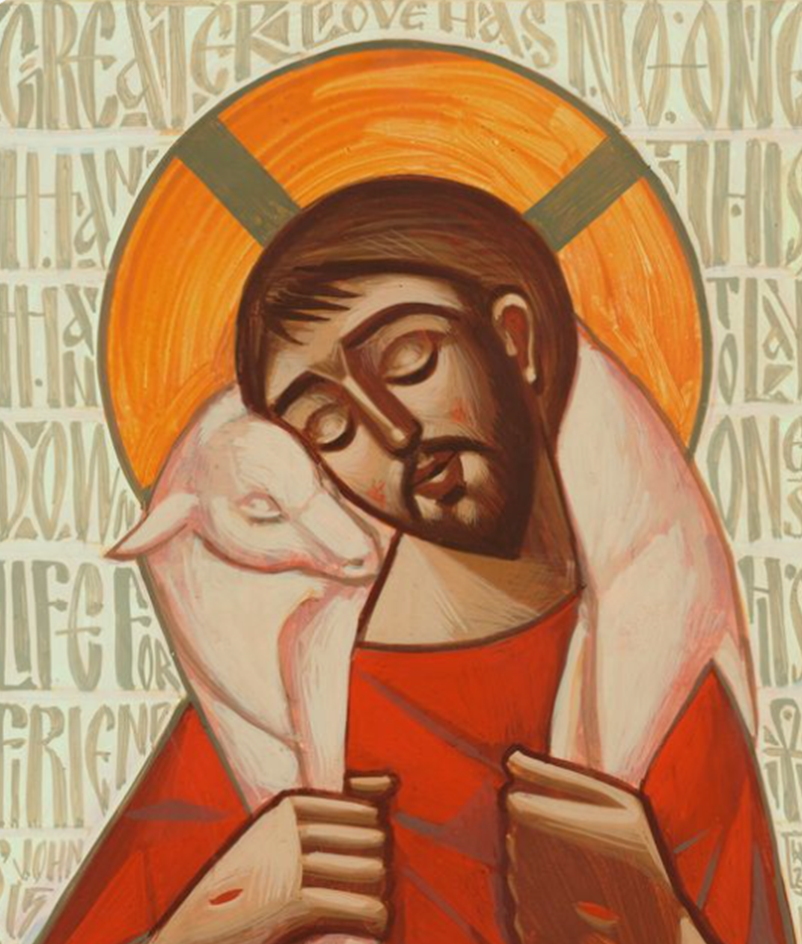
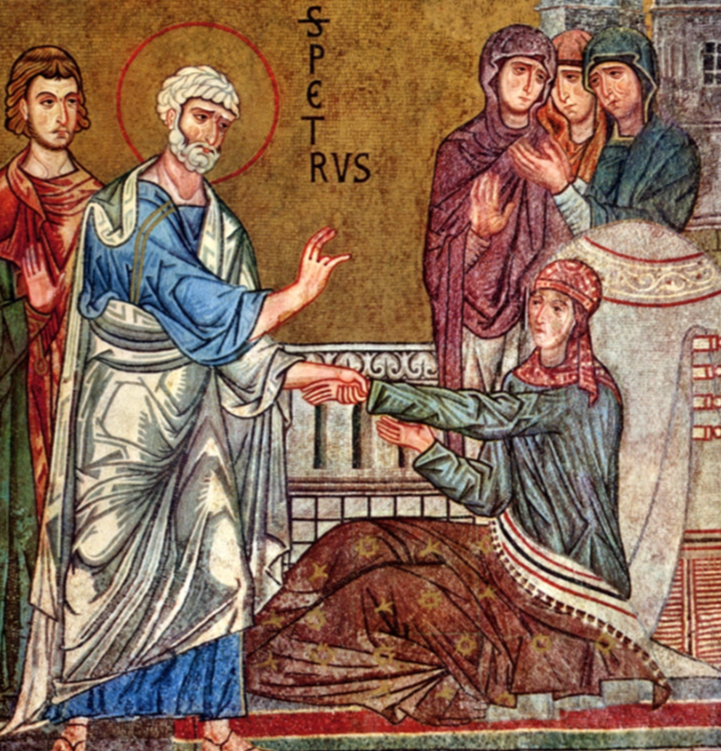
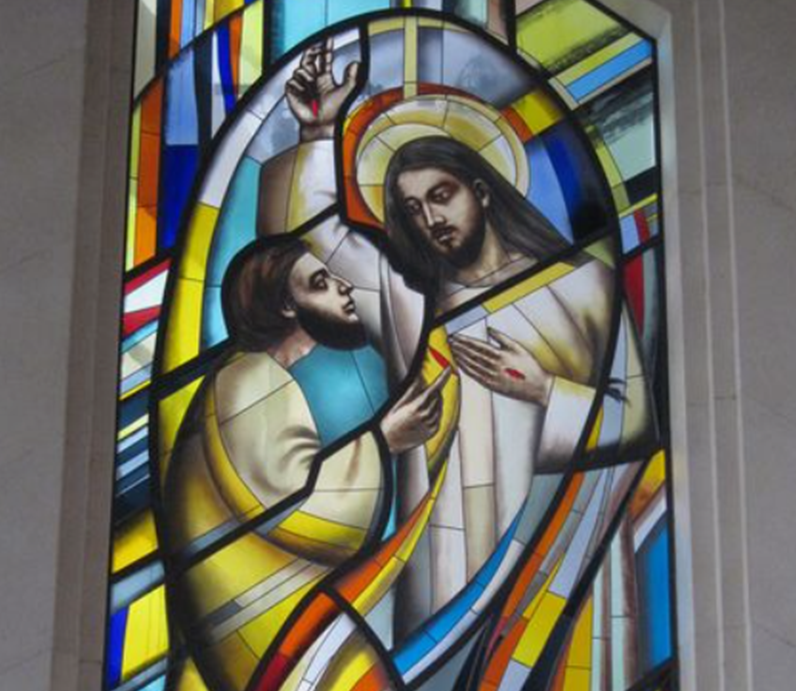
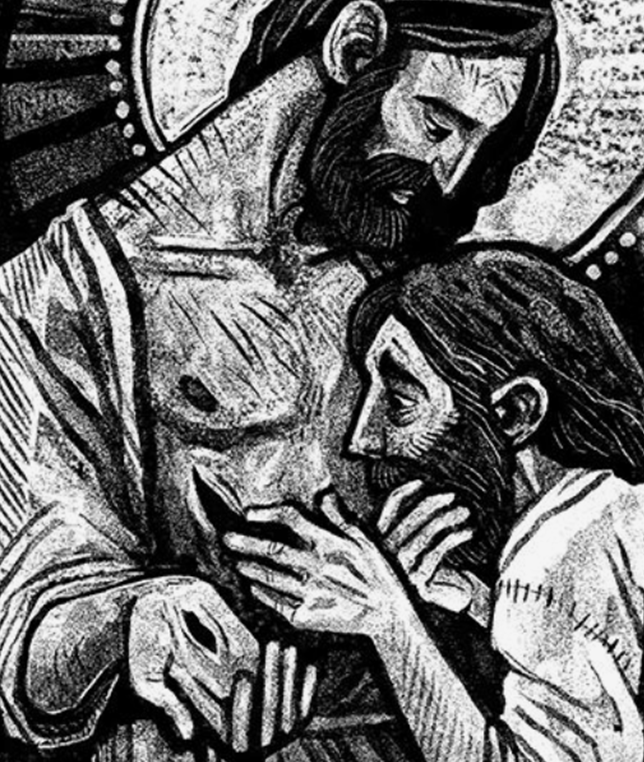
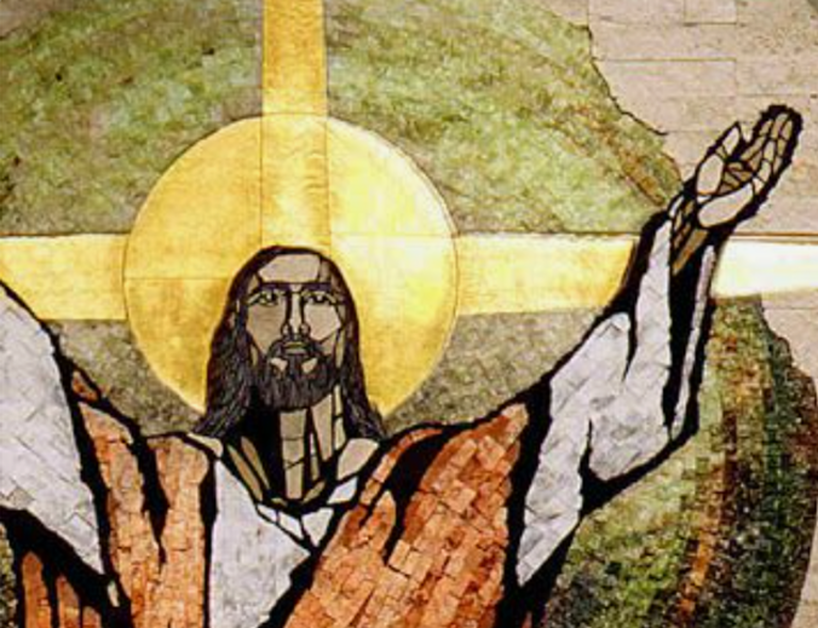
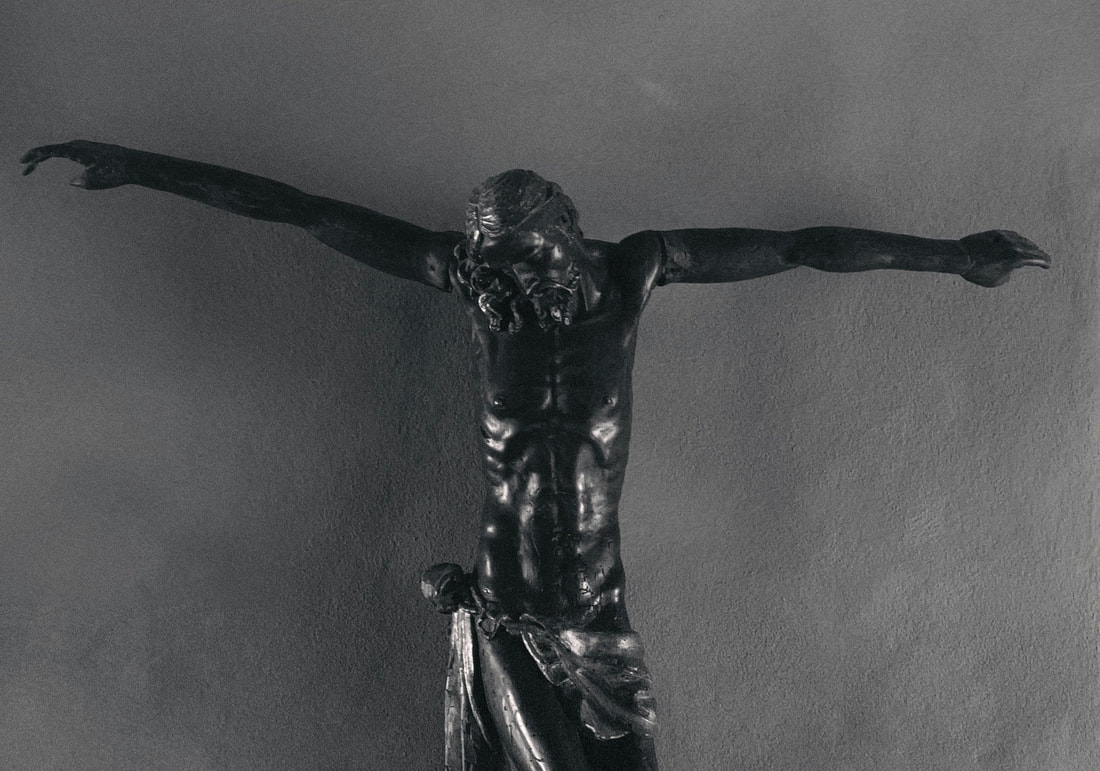
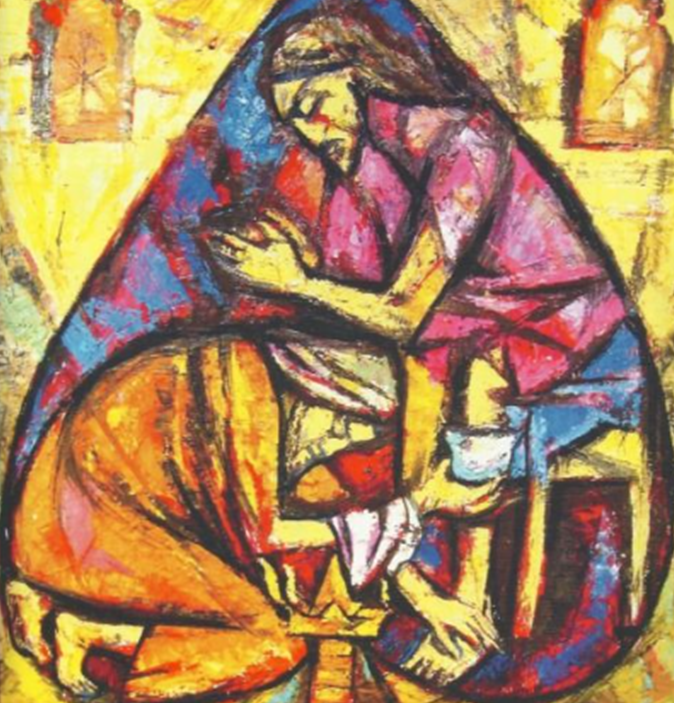
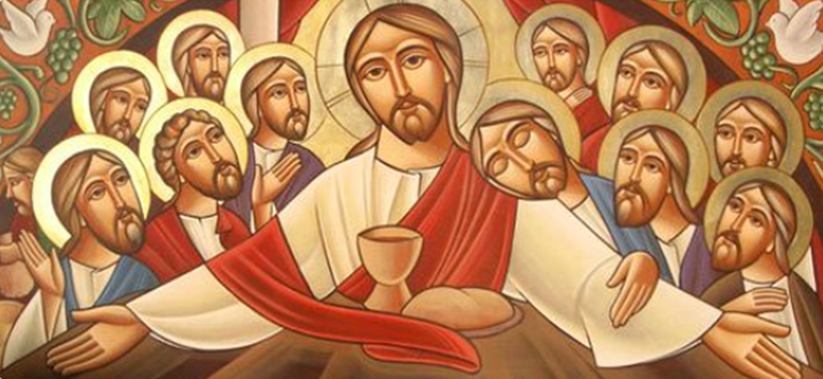

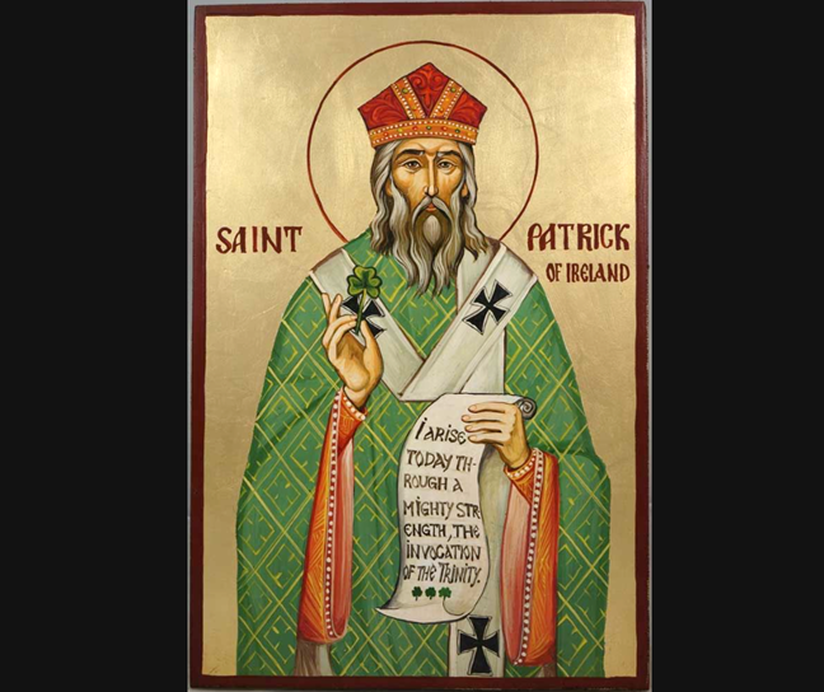
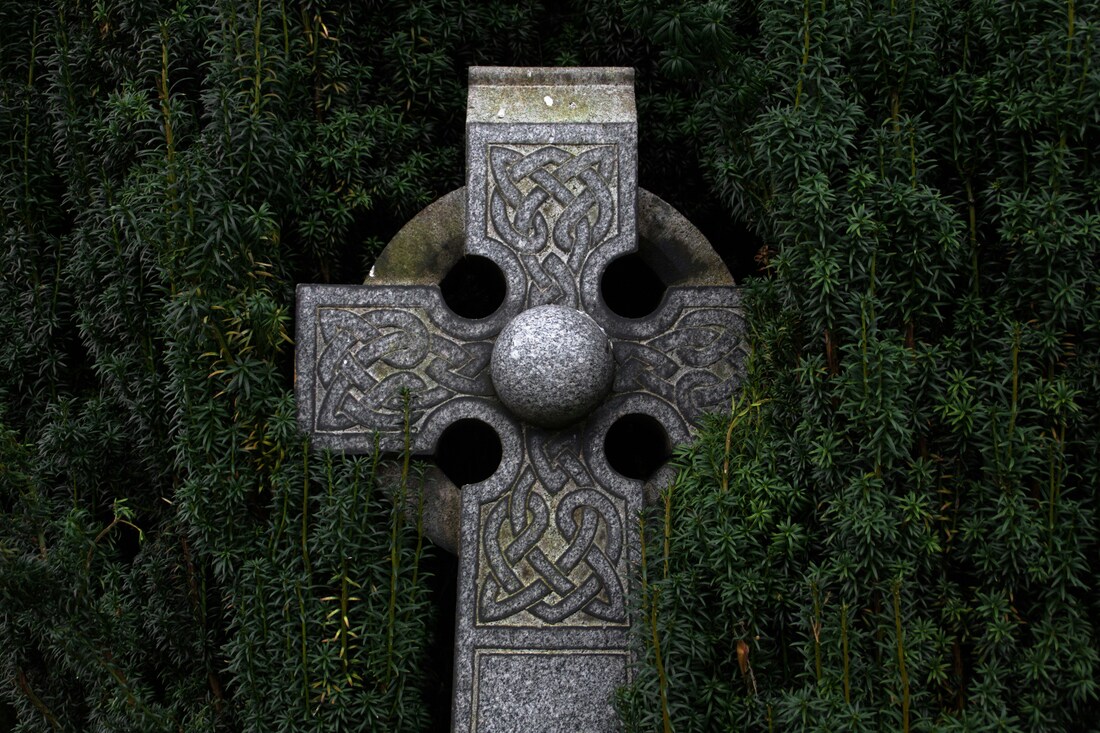
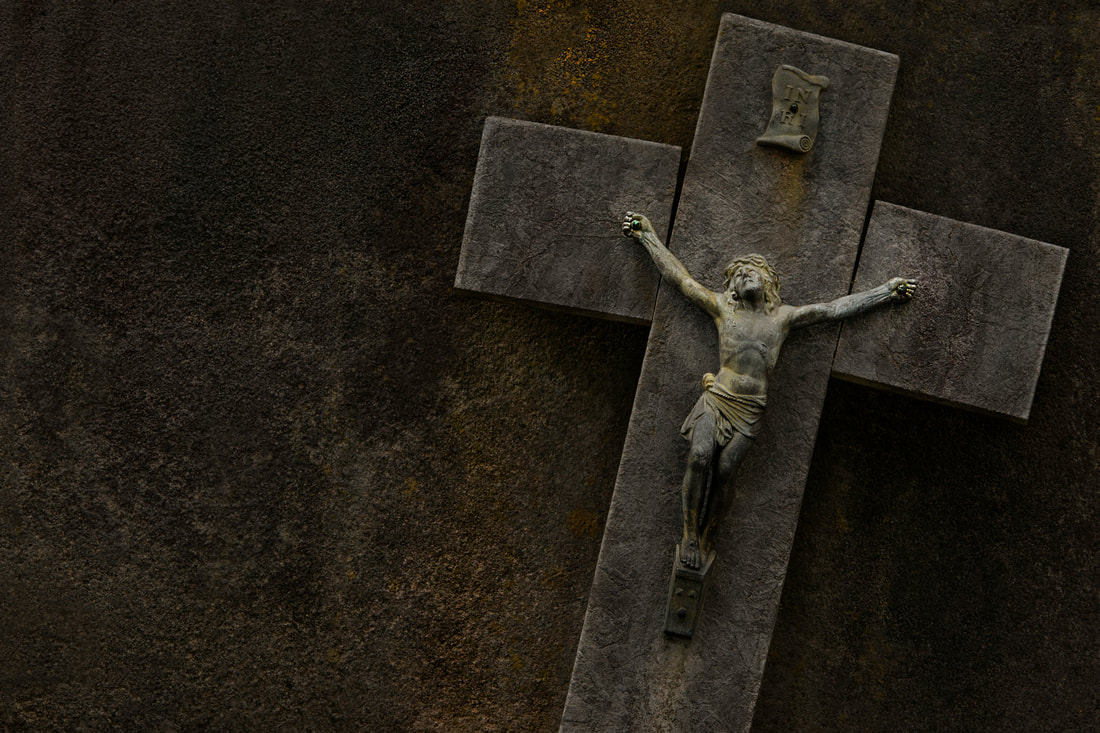
 RSS Feed
RSS Feed
